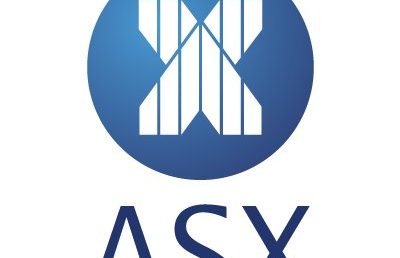AI, VR and fintech in focus as Microsoft takes on its first Aussie start-ups
Artificial intelligence and financial services based start-ups provide the majority of the first cohort of global tech giant Microsoft’s first Australian accelerator program. The program, known as ScaleUp, was announced in February and targets start-ups that have typically received initial funding and are looking to expand. It promises to help fast-track their growth by linking them with potential customers, Microsoft partners and technical guidance, without giving up any equity. The Australian start-ups selected are Auror, Daisee, FreightExchange, Hyper Anna, InDebted, Kapiche, Karbon, Makers Empire, Teamgage, SimpleKYC, Start VR, VendorPanel and Winimy AI. Many have secured funding in recent times, including virtual data scientist Hyper Anna, which raised $16 million from […]
Basiq and Verrency enable banks to drastically improve the quality of their data
Basiq and Verrency have joined forces to enable banks to store clean, categorised and enhanced transaction data – in real-time, at point of purchase. This will uncover new opportunities for banks to offer their customers innovative, and personalised products and experiences. We are all aware of how ‘unclear’ transaction data can be. Think of how often customers call banks with queries – they have no idea what an item on their credit card statement called ‘HT Willis Brook’ is. You may have heard the term ‘garbage in – garbage out’. If a bank stores unclear transaction data when a customer makes a purchase, this data is then passed downstream to […]
Aussie banks dragged into the ‘open source’ era via GitHub
Financial policy making is getting the open source tech treatment, courtesy of Data61. The use of GitHub to manage the development of open banking technical standards represents a significant innovation in Australian policy making. GitHub, which is used by 28 million software developers around the world, was bought by Microsoft in June for $US7.5 billion ($10.5 billion). The open banking Data Standards Body, which is being run by the CSIRO’s Data61 unit, is using the online service to manage feedback and comments for the technical standards that will govern the movement of data in the new economy. All decision proposals and final decisions for the open banking standards will be […]
ndau: World’s first “buoyant” stablecoin cryptocurrency revealed
Meet the unpegged, uncollateralised ndau, courtesy of finely-tuned tokenomic and governance elements. Stablecoins have been proliferating in the last few months. All of them are curious and flawed creations in their own way, and there are growing concerns that stablecoins of any kind, in principle, are economically impossible. But maybe ndau can buck the trend. The coin was just unveiled today, and is perhaps the most distinctive and advanced stablecoin that has been created to date. The best of both worlds, for the best of both worlds “Stable is good. Buoyant is better,” ndau says. The ndau Collective came together as a group of early bitcoin enthusiasts who aimed to […]
Step-by-Step Guide: How to Create Your Own Cryptocurrency
Introduction Did you know, there are different forms of money? Not just real and counterfeit. Those categories were relevant in the 20th century. Now we have Cash money, digital money or money that can be accessed through online mediums, and plastic money which refers credit cards and debit cards. But in the last decade, the whole world has seen the emergence of a new form of money. It is definitely the cryptocurrency. Cryptocurrencies or virtual currencies are digital assets which can be used as a medium for exchange. Some notable instances of cryptocurrency are Bitcoin, Dogecoin, and Dentacoin. There are many more such cryptocurrencies available online. It is important to […]
Crowdfunding reforms bolster investment pool for Aussie businesses
“It’s almost creating Shark Tank for the public, or be your own Shark Tank, which is phenomenal from an innovation perspective in Australia,” says Crowdfunding.com.au founder Chaz Prezident. Private Australian businesses will soon no longer need to become public companies if they want to access crowdfunding to raise equity, following reforms to the Corporations Act passed this week by the federal Parliament. Under the current law businesses can only raise money from retail investors through equity crowdfunding if they convert to an unlisted public company structure, but that will change as of 7 October. Crowdfunding.com.au founder and CEO Chaz Prezident says small and medium-sized businesses are already embracing the expansion of the crowdfunding […]
ASX gears up for fintech era as data foundation for financial services industry
The Australian Securities Exchange will push ahead with attempts to establish itself as a global technology pioneer, despite criticism of its governance, with its operations boss pledging to balance risk with the flexibility required to thrive in the fintech era of blockchain and artificial intelligence. Speaking to The Australian Financial Review following the release of a review by the Australian Securities and Investments Commission into its technology practices, ASX chief operating officer Tim Hogben said an ongoing technology improvement program was already bearing fruit and that the exchange was outpacing global peers in opening up its data for customers and startups. The ASIC report had originated from a costly outage in […]
Equity crowdfunding extended to private companies
Businesses wishing to raise money from retail investors will no longer have to convert to an unlisted public company structure, after an amendment to 2017’s equity crowdfunding legislation passed federal Parliament. The legislation, which takes effect in 28 days from Wednesday, allows proprietary companies or unlisted public companies with annual turnover or gross assets of up to $25 million to advertise their business plans on ASIC-licensed crowdfunding portals, and raise up to $5 million a year to carry them out. Investors can put up to $10,000 a year each into an unlimited number of ideas. Australian private companies are typically limited to a maximum of 50 non-employee shareholders. However, under these […]









